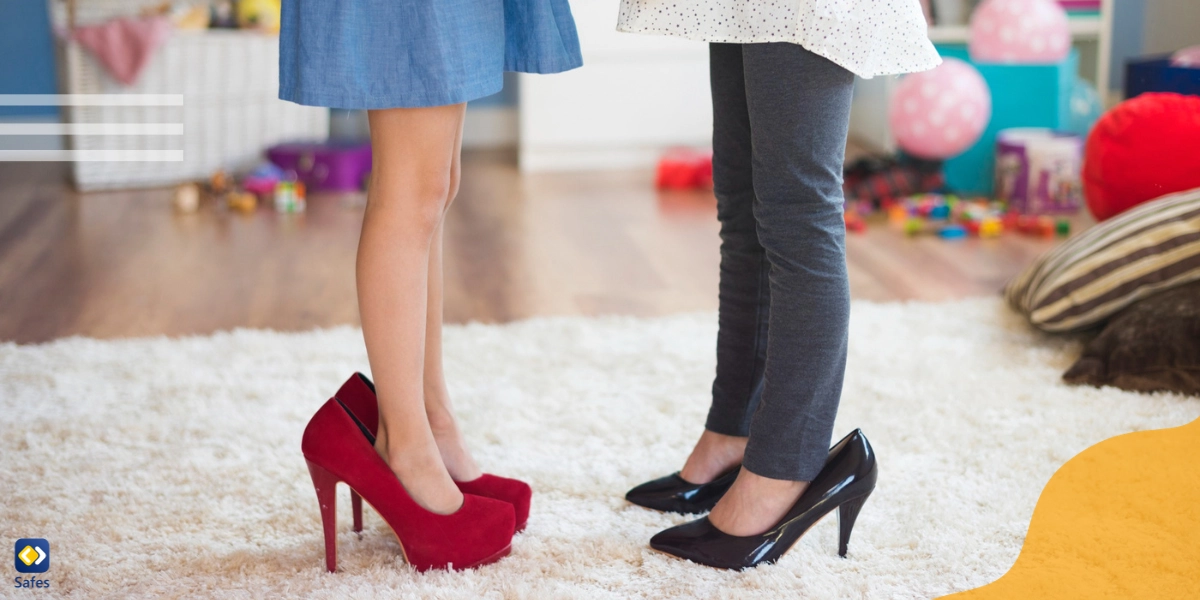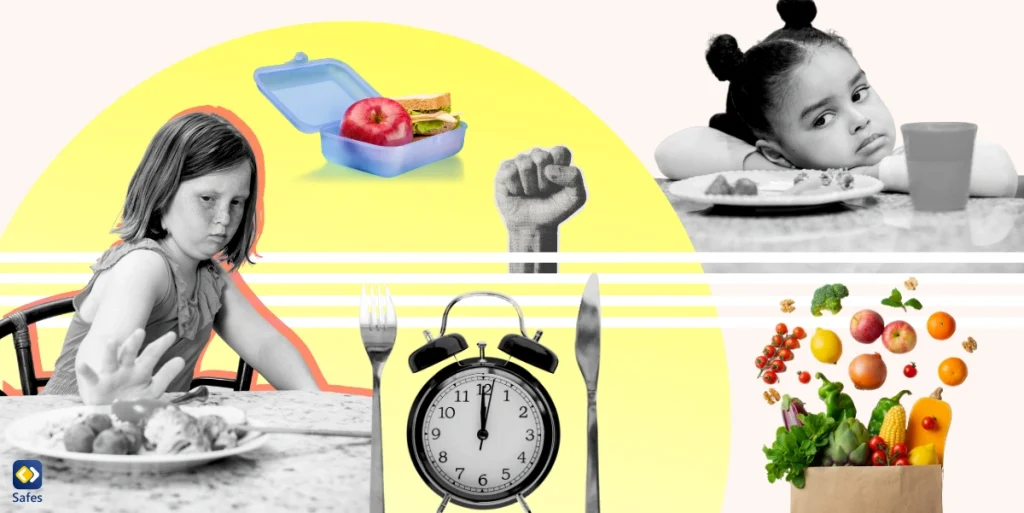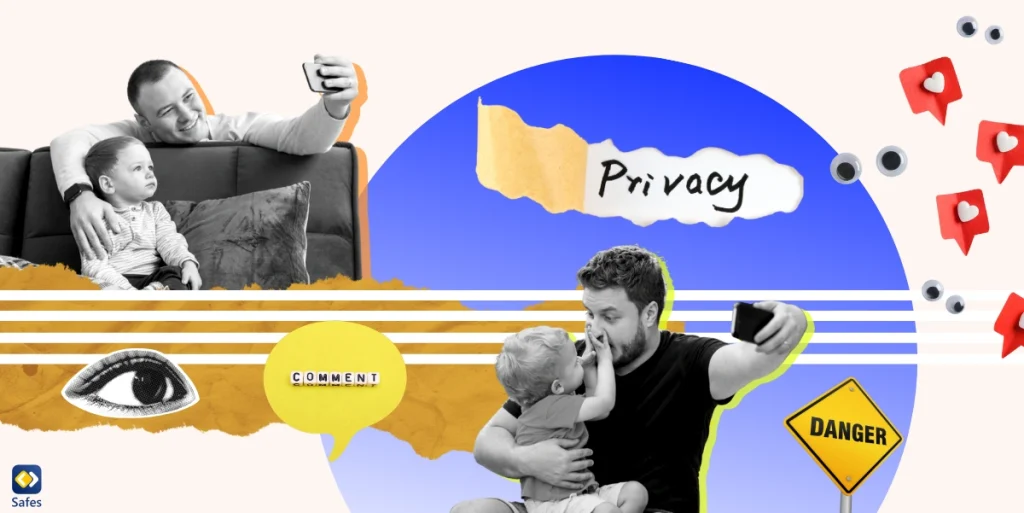Children’s beauty pageants, TV commercials, and mom influencers on Instagram; child sexualization seems to be prevailing in the media these days. The advancements in technology, especially in social media, have been making people feel exposed all the time, making appearances more important than ever. This issue has been extended to the children’s world as well: The media tries to depict children as objectified creatures who are supposed to be sexy and beautiful. In this blog post, we will discuss how the sexualization of children can affect them and what we can do to put a stop to this problem.
Download and Start Your Free Trial of the Safes Parental Control App
Understanding Sexualization
In general, sexualization refers to the act of giving too much importance to a person’s sexual traits, to the point that their sexual appeal becomes their dominant attribute. Through sexualization, a person is objectified and regarded as only a sexual being while their other characteristics are neglected. The examples of sexualizing someone are diverse: it can be a popular show that only casts skinny tall actresses, catcalling, or invasive staring in public.
In the context of children, sexualization means giving too much value to appearances, disregarding the fact that they are not adults, and assigning sexual attributes that are specific to adults to them. According to the American Psychological Association, unhealthy sexualization has four main components:
- A person is only valued based on their sexual appeal.
- A person is expected to be physically attractive (=being sexually appealing).
- A person is merely regarded as an object for other people’s sexual pleasure.
- A person’s sexuality is assumed or imposed.

Impact on Children
Being exposed to sexualization of youth in the media has many negative effects on children. First, it can affect their mental health. A study conducted on little girls of 6 to 9 years old shows that seeing sexualized content in the media contributes to the internalization of such messages and makes them develop a negative body image. It’s actually not hard to imagine the link: Seeing sexualized images of people everywhere makes children think this is normal and that they should also look and behave in a certain way. This can further encourage the development of unrealistic expectations in children.
Sexualization of children can also impact their relationship with others. A child who believes that their value comes from the amount of their sexiness won’t be able to find a respectful relationship where they are appreciated for who they are inside. They won’t be able to understand when they’re being exploited sexually and how to set boundaries. They will be appearance-driven and will do anything to live up to certain standards.
Media and Cultural Influences
Where does this culture of sexualization stem from? A big part of it comes from big companies with advertising intentions. They set unattainable standards and inject them into young minds through the media. Their ways are so subtle that people won’t realize how deeply-rooted these values have become. Our children today know that if they don’t take that famous supplement to lose weight or do that nose job, they will be unwanted and insufficient. Therefore, they’re ready to give all that they have just to become what they’re expected to be.
Another source of child sexualization is the people themselves. They have internalized these standards so much that they have become the advocates for it. Social media influencers, celebrities, and public figures all contribute to the formation of this pop culture and act as vessels who transfer it to our children.
Gender stereotypes are the last culprit. Men are believed to be sex-driven creatures who only think about sex, and women are sexual beings who should always be on the receiving end. Research shows that stereotypical sexualized behaviors are very common among college students and contribute to their participation in such sexualized actions. These thoughts have been infecting societies for a long time and have gradually influenced people’s behaviors.
How to Deal With Sexualization of Children
To protect your child from the negative effects of sexualization, first you must understand that children are curious creatures, and that their bodies are developing. So, not all the acts that have a sexual implication are related to the detriments of sexualization; they might be a natural part of growing up. To learn the difference, read Preventing & Addressing Sexual Maladaptive Behavior in Kids.
Now, let’s see what we can do to protect our children:

Parental Guidance and Education
Parents are the first people who shape the personality and behavior of a child. As a parent, you should try to instill values in your child that are not based on their level of sexiness but are an indicator of their good qualities. Have honest and open discussions about sexuality and how it can be expressed in a healthy way.
Another important thing is to teach them about boundaries and consent. Children should know that respect is an important component of every healthy relationship, and that they should never do anything they’re not comfortable with just to make others happy. It goes both ways: they should also treat other people with respect and never objectify or sexualize them.
Promoting Online Safety
The internet has turned into a breeding ground for sexualization. All those edited photos of people in revealing outfits, sexual innuendos in posts and stories, and the liberty to leave your opinion under a post all contribute to the creation of a sexualization culture that can affect our children. That’s why it’s necessary to promote responsible online behavior in children and educate them on how to be safe out there.
When it comes to children’s online safety, parental monitoring takes center stage. Parents should know what content their children are exposed to, and that’s exactly what Safes parental control app does. With this app, you can ensure your children are safe from the negative effects of child sexualization by monitoring and filtering inappropriate content both on social media and the web. Safes is easy to use and can be installed on all devices, such as Android, iOS, and Windows. Download now for a free trial and protect them from online risks.
School Involvement
Sexuality is a complex subject that can be misunderstood without proper knowledge. Integrating sex education into the school’s program is a beneficial initiative that schools can take to raise awareness of the concept of sexuality and the negative effects of the sexualization of children.
Teachers can even do more than that. They spend a big part of the day with children. So, if a student is in danger or is manifesting any changes in their behavior, they’ll notice. Therefore, they can be a good source providing parents with insights on their children. This, however, requires that communication between the family and the school be ongoing and effective.

Promoting Positive Body Image
When children see instances of sexualization in the media, their view of themselves changes. They will start comparing themselves with those sexualized idols, which will eventually make them hate their own bodies. What you should do as a parent is to teach your child to accept themselves no matter how they look. They should also know that not looking like those people doesn’t necessarily mean that they’re ugly. Because the media always tries to portray an idealized image of people, no matter if it’s about men or women. Encouraging healthy attitudes towards one’s own body and fostering media literacy go hand in hand in promoting a positive body image.
Conclusion
Parents hold an immense responsibility to combat the sexualization of children. In our journey to protect and nurture the well-being of our children, we’ve explored the intricate issue of sexualization – its causes, consequences, and preventive measures. We hope this comprehensive discussion has shed light on the importance of safeguarding our children from premature exposure to sexual content and attitudes.
Your Child’s Online Safety Starts Here
Every parent today needs a solution to manage screen time and keep their child safe online.
Without the right tools, digital risks and excessive screen time can impact children's well-being. Safes helps parents set healthy boundaries, monitor activity, and protect kids from online dangers—all with an easy-to-use app.
Take control of your child’s digital world. Learn more about Safes or download the app to start your free trial today!




